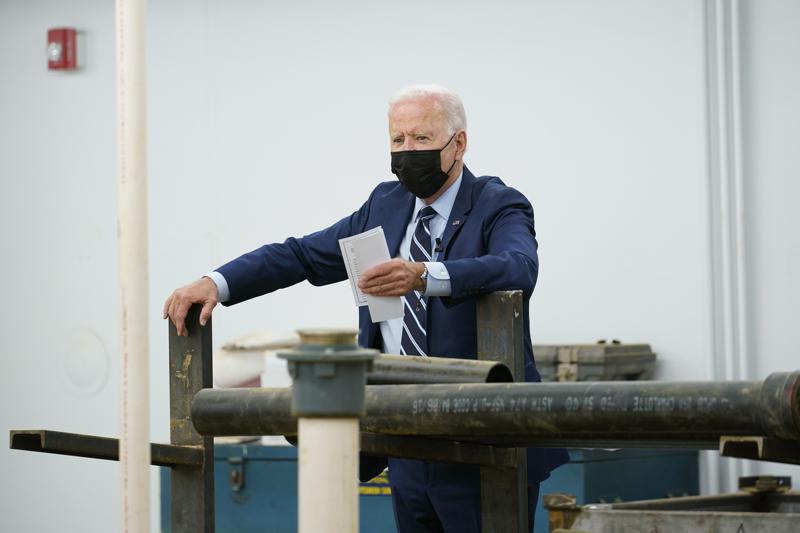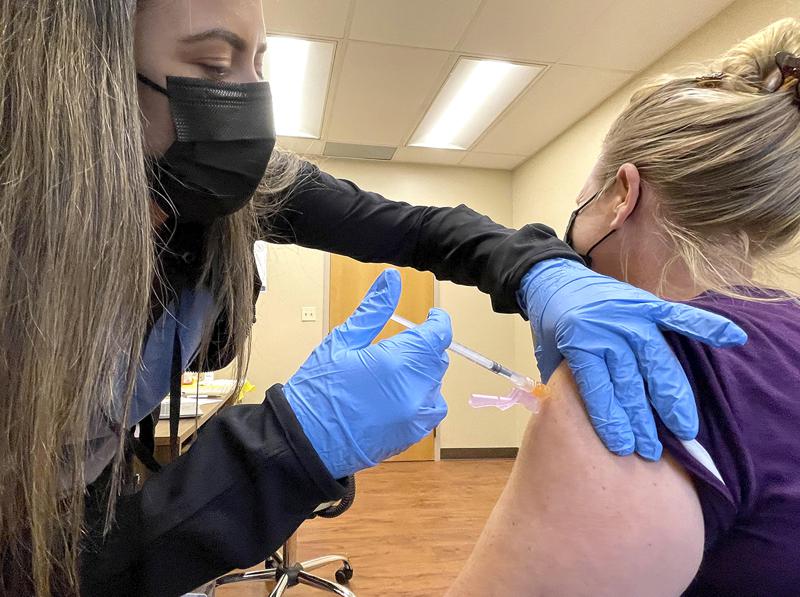Katie Britt: Long past time we talk about mental health

The subject of mental health has been all the buzz on news broadcasts, sports shows, and around dinner tables all over the world this past week. Frankly, it’s a conversation that is long overdue. As I travel our great state, I frequently hear from judges, circuit clerks, law enforcement officers, and health care workers that mental health issues are a root cause of a large percentage of crime, hard drug use, and violence that we experience in Alabama. A lack of adequate services, coupled with the stigma that is often attached to seeking mental health treatment, has led to a statewide – and nationwide – a crisis that is impacting our society on many levels. I believe that all Alabamians should have the opportunity to succeed, and that cannot occur if we do not prioritize mental health. The Alabama Department of Mental Health already serves over 200,000 of Alabama’s citizens today living with mental illnesses, developmental disabilities, or substance use disorders, but it is estimated that over one million Alabamians have a mental illness. Unfortunately, Alabama ranks 46th nationally when it comes to access to mental health services, and 56.5% of Alabamians with a mental illness receive no mental health treatment. To those facing these battles, you are not alone. One in five Americans experience mental illness in their lifetime, and it’s time we eliminate the stigma associated with it. We must ensure every single Alabamian has access to the resources and care they need to thrive. Thankfully, the Alabama Legislature and Gov. Kay Ivey’s administration have made strides in recent years to increase state investment in mental health services. This includes three new crisis centers in Mobile, Montgomery, and Huntsville, as well as five new rural crisis care projects with mobile crisis teams that will expand access to care for Alabamians across the state. An additional crisis center will be established in the Birmingham-Tuscaloosa region later this year. In the U.S. Senate, I’ll be a champion for measures that responsibly improve access to mental health resources and services, such as the Excellence in Mental Health and Addiction Treatment Act of 2021, the Mental Health Access Improvement Act of 2021, the Improving Access to Mental Health Act of 2021, and the Creating Opportunities Now for Necessary and Effective Care Technologies (CONNECT) for Health Act of 2021. I will work every day to ensure no Alabamian is forgotten or slips through the cracks of our system. This includes the people and communities of our state who have been ravaged by the opioid epidemic. In 2018, Alabama providers wrote 97.5 opioid prescriptions for every 100 people — the highest such rate in the United States and almost twofold greater than the national average. While elected officials on the state level have taken steps in recent years to move the needle in the right direction, we still have a long way to go. As we continue to combat this crisis, part of the effort must include holding bad actors responsible for their roles in creating this deadly problem. Nearly half of the 775 reported drug overdose deaths in Alabama involved opioids in 2018. That’s why I would support the Non-Opioids Prevent Addiction in the Nation (NOPAIN) Act in the U.S. Senate, which would promote non-addictive treatments for those recovering from surgery as an alternative to opioids. I will also support efforts to stem the rash of suicides facing Alabama and our nation as a whole. As of 2018, the suicide rate in Alabama was 16.8 per 100,000, which was higher than the national average of 14.2 per 100,000. This made suicide the 11th leading cause of death in our state, with 823 citizens lost to suicide compared to 567 deaths due to homicide. Suicide rates are also far greater among certain demographics in America and Alabama, including among our tremendous veterans. While supporting mental health efforts goes hand-in-hand with lowering the suicide rate, suicide is a complicated issue and is rarely caused by a single factor. CDC data has indicated that more than 50% of people who die by suicide are not known to have a mental illness. Factors such as substance abuse, physical health, job trouble, money, or legal difficulties can also contribute. My goal is to help build an Alabama in which increased opportunity and the proper safety net of resources combine to decrease these common suicide factors. While we have a lot of work to do long-term, we all need to begin addressing mental health as seriously and openly as we address all other physical health issues. Hopefully, this past week’s conversations can continue in the weeks and months ahead and lead to real, positive change. Resources are available for those battling mental illness via the National Alliance for Mental Illness here and the Alabama Department of Mental Health here. If you or someone you know is experiencing suicidal thoughts, please call the Suicide Prevention Hotline at 1-800-273-8255. Katie Britt is a Republican candidate to serve as the next U.S. Senator for Alabama. An Enterprise native, Katie resides in Montgomery with her husband, Wesley, and their two children, Bennett and Ridgeway.
Barry Moore says mandatory vaccines for military is ‘reckless’

Rep. Barry Moore released a statement regarding reports that Secretary of Defense Lloyd Austin will require all active-duty military members to receive a COVID-19 vaccination regardless of health, age, or other factors. Rep. Thomas Massie introduced legislation to prohibit a mandatory COVID-19 vaccination requirement for troops. At a news conference, Austin said he would consult with medical professionals to implement a new policy, reported CNN. “But we won’t let grass grow under our feet,” he stated. “The President directed us to do something, and we’ll get after it.” The U.S. military says around half the U.S. armed forces are already fully vaccinated, with the highest vaccination rates in the Navy, reported Reuters. “We have a lot of vaccines that are required for self-protection, and once this one is mandatory, I don’t think that we will have a lot of pushback. I think people will do as they’re required,” an Army official said. “It is absolutely reckless that Secretary Austin is considering a blanket mandate for active-duty military to receive a vaccine approved only for emergency use to protect against a virus with well over a 99% survival rate,” said Moore. “Our fighting men and women are disproportionately younger, healthier, and significantly less at risk from the coronavirus than the general population, and recent reports show that almost 70% of our men and women in uniform have already voluntarily taken the vaccine. Our servicemembers shouldn’t be unnecessarily forced into taking the vaccine just because overreaching politicians want to continue intervening in the private lives of the American people.”
U.S. plans to require COVID-19 shots for foreign travelers

The Joe Biden administration is taking the first steps toward requiring nearly all foreign visitors to the U.S. to be vaccinated for the coronavirus, a White House official said Wednesday. The requirement would come as part of the administration’s phased approach to easing travel restrictions for foreign citizens to the country. No timeline has yet been determined, as interagency working groups study how and when to safely move toward resuming normal travel. Eventually, all foreign citizens entering the country, with some limited exceptions, are expected to need to be vaccinated against COVID-19 to enter the U.S. The official spoke on the condition of anonymity to preview the policy under development. The Biden administration has kept in place travel restrictions that have severely curtailed international trips to the U.S., citing the spread of the delta variant of the virus. Under the rules, non-U.S. residents who have been to China, the European Schengen area, the United Kingdom, Ireland, Brazil, South Africa, and India in the prior 14 days are prohibited from entering the U.S. All travelers to the U.S., regardless of vaccination status, are required to show proof of a negative COVID-19 test taken within three days of air travel to the country. The Biden administration has faced pressure to lift some restrictions from affected allies, the air travel industry, and families who have been kept separated from loved ones by the rules. Many have complained that the travel restrictions don’t reflect the current virus situation — particularly as caseloads in the U.S. are worse than in many of the prohibited nations. Republished with the permission of the Associated Press.
Prosecutors ask judge to keep convicted sheriff in jail

A longtime Alabama sheriff convicted of felony charges and removed from office should have to remain in jail until he is sentenced, prosecutors told a judge Tuesday. Former Limestone County Sheriff Mike Blakely hasn’t shown any reason he should be treated differently than other convicted felons in his home county, where the standard practice is for defendants to remain jailed until sentencing, the state argued in court papers a day after jurors convicted Blakely on theft and ethics charges. The state plans to seek prison time for the 70-year-old Blakely, who was held in the same jail he oversaw for nearly 40 years, and there is “no just reason to delay the start of that sentence so that he can be given credit for any time in custody,” prosecutors said. The defense argued that Blakely wasn’t a flight risk and is a lifelong resident of the county, and should be able to go free on bond while awaiting a sentencing hearing set for Aug. 20. It disagreed with prosecutors’ claim that people convicted in the county generally remain jailed until sentencing. Blakely, who was indicted in 2019, had been free on a $49,000 bond until the jury convicted him on theft and ethics charges on Monday, resulting in his removal from office. He was found guilty of borrowing money from a jail safe used to hold inmates’ money and depositing $4,000 in campaign funds into his personal account. First elected in 1982, Blakely was acquitted on multiple other counts. Blakely still faces a possible prison sentence of between two and 20 years for each count.
Birmingham hospitals: Most COVID patients are unvaccinated

Hospitals in Birmingham are seeing a surge in COVID-19 patients — usually unvaccinated and often younger — as doctors and administrators pleaded Wednesday for people to get vaccinated. Doctors and administrators at seven Birmingham hospitals participated in a media briefing to discuss the recent surge in cases. The overwhelming majority of current COVID-19 patients are unvaccinated, and patients tend to be younger than they were at the start of the pandemic before vaccines were available, the hospital’s officials said. Dr. Elizabeth Ennis, chief medical officer of Brookwood Baptist Health, said the delta variant of the virus is moving like “wildfire” through the state. “What’s different this time is we are seeing much younger people in the hospital,” Ennis said. Vaccination rates have typically been higher in older age groups. Across Alabama, the number of COVID-19 patients in state hospitals jumped from 213 on July 4 to 1,802 on Aug. 4, according to the Alabama Hospital Association. The current hospitalization numbers are far less than the 3,000 COVID-19 patients in state hospitals at the peak of the pandemic in January. However, health officials have expressed concern about the steep upward trend. As of Wednesday, there were 508 patients in state hospitals, compared to 848 on Jan. 12, said Dr. Don Williamson, head of the Alabama Hospital Association. Alabama ranked fifth in the nation for new cases per capita in the past 14 days, according to researchers at Johns Hopkins University. The seven-day rolling average of daily new cases in Alabama has risen over the past two weeks from 1,013.71 new cases per day on July 19 to 2,525.71 new cases per day on Aug. 2. People who have been vaccinated can contract the coronavirus, but health officials have said they are far less likely to get seriously ill. Dr. Jeremy Rogers, an emergency room physician and director of clinical services at Grandview Medical Center, said 92% of incoming COVID patients at his facility are unvaccinated, and a majority are under age 60. He said they recently admitted a 19-year-old with COVID. “This is absolutely heartbreaking what we are seeing. It’s tragic. And unfortunately, it’s largely preventable,” Rogers said. “We’ve talked a lot about vaccine hesitancy, but I’ve seen a lot of vaccine regret in patients, in family members that wish they would have been vaccinated sooner. Vaccines are widely available, and so now’s the time to get vaccinated before it’s too late,” Rogers said. Dr. Timothy Bode, chief medical officer at Ascension St. Vincent’s Health System, said 88% of their nearly 100 COVID-19 patients are unvaccinated. He said 93% of COVID-19 patients in critical care units and on ventilators are unvaccinated. Dr. Mark Wilson, health officer for the Jefferson County Department of Health, urged people to get vaccinated and to get back to basics with wearing masks and avoiding crowds. “We are in a big scary surge right now,” Wilson said. Republished with the permission of the Associated Press.
Hundreds rally for striking coal miners in Alabama

Hundreds of union members from multiple states rallied Wednesday for Alabama miners who have been on strike against Warrior Met Coal Inc. since early April seeking contract improvements. With many in the crowd holding signs decrying unfair labor practices and wearing camouflage T-shirts emblazoned with the words “We are one,” allies presented checks to aid the roughly 1,100 striking workers. The United Mine Workers of America said busloads of members from states including Illinois, Indiana, Pennsylvania, Ohio, Kentucky, and West Virginia planned to attend. Country and gospel singers entertained between speakers, and many in the crowd ate popsicles and sat under umbrellas or canopies. The rally was held at a park in rural Brookwood near the offices of Warrior Met, which produces coal used in steel production in Asia, Europe, and South America. “We have begun the fifth month the miners at Warrior Met Coal have been striking for a fair and decent contract,” UMWA International President Cecil E. Roberts said in a statement before the rally. “We are not backing down. We are only getting stronger. The entire American Labor Movement is standing with us in this fight.” The strike includes the company’s No. 4 and No. 7 mines, a preparation plant, and a central shop, all located in Tuscaloosa County. Labor and the company quickly reached an agreement to end the walkout a few days after it began on April 1, but members rejected the deal. The union has said workers sacrificed to bring the company out of the Walter Energy bankruptcy five years ago, and members have advocated for better health benefits. Warrior Met has said it offered workers a competitive package that would protect jobs and the health of the company. Republished with the permission of the Associated Press.

